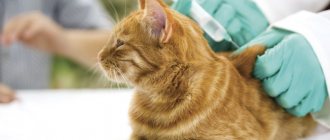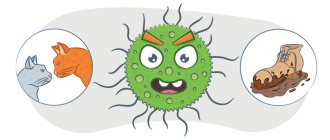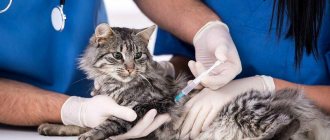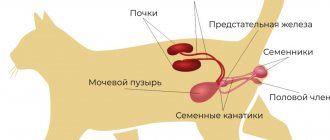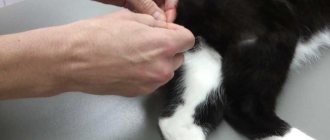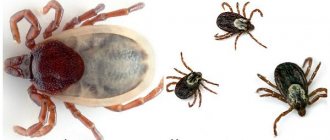Vaccination of cats and kittens is an integral part of pet care. All of them have diseases that are not at all dangerous to humans, but carry a mortal danger to animals.
The owner can bring pathogenic viruses into the house on shoes and clothes, thereby infecting the pet. That is why it is important to prevent the disease in time.
Why do cats need vaccinations?
Vaccinations for cats differ little from human vaccinations and any other vaccinations. The animal is injected with a drug containing weakened bacteria and viruses. When they enter the body, they provoke the production of specific antibodies, which in turn form a stable immune defense against harmful microbes and various diseases.
It is noteworthy that a cat must be vaccinated, even if the animal is constantly at home. The fact is that viruses that can infect a pet are literally everywhere. They can be found in the air, water and food of a cat, and a person can also carry the bacteria on his clothes.
The first vaccinations for a kitten are given at a very early age - 2 months. This helps to form a strong immune system and protect the baby from external harmful influences. Vaccination is carried out strictly in accordance with the approved schedule; before the injection, double deworming must be carried out with a break of 10 days. You also need to treat fleas and ticks on the animal’s body.
Immediately before the vaccine is administered, the pet is examined by a veterinary doctor, and additional tests are prescribed if necessary.
What diseases are cats vaccinated against, age and medications
When visiting a veterinary clinic with a small kitten or an adult cat, doctors recommend vaccinations against the following diseases:
- feline herpes virus, manifested as rhinotracheitis;
- calicivirus;
- feline distemper;
- chlamydia;
- infectious peritonitis;
- ringworm.
In some cases, preventive vaccinations are given against various types of parasites, for example, ticks, fleas and others. Today there are a huge number of drugs, which, as a rule, are administered in a complex manner.
A newborn kitten has the opportunity to be protected by antibodies obtained on the first day after birth. He receives them with his mother's colostrum during feeding. However, such immunity will not be able to protect the baby for longer than 16 weeks.
In addition, it should be understood that the kitten receives immunity only to those viruses and infections against which its mother was previously vaccinated.
It is not recommended to vaccinate a small cat before 10 weeks of age. Passive immunity received from the mother will prevent the body from effectively producing antibodies to diseases. However, if there is a danger of the animal becoming ill, the vaccine is given between 6 and 16 weeks of age.
The choice of vaccine and the age of the animal when the vaccination will be given is made exclusively by a veterinarian. This is explained by the fact that cats, like people, are highly individual, and you need to look at the pet’s health. But there is a general list of vaccines against diseases and the age of animals when these vaccinations need to be given.
It is advisory in nature and is not required to be strictly followed. When vaccinating, you should always follow the opinion of the observing specialist.
The first vaccination is carried out against respiratory diseases (rhinotracheitis, calcivirus and panleukopenia) - 9-12 weeks of the pet’s life. Together with them, a vaccination against chlamydia is given. Revaccination – after 2-4 weeks.
At 16 or 20 weeks of age, kittens are given a vaccine against infectious peritonitis. Repeated vaccinations are prescribed a year after the first.
Detailed terms, rules of use and adverse reactions can always be found in the instructions for the drug.
How to stop being afraid to give your pet an injection
In order not to be afraid to give injections to your cat yourself, you need to remember the following:
- If, during a femoral injection into a muscle, the needle pierces a bone or ligament, you should not panic, you need to calmly pull the needle back and continue the manipulation. There will be no harm to the cat.
- One small bubble that penetrated from the syringe under the skin or inside the muscle will resolve on its own and will not harm the cat’s health.
- If, when injecting into the withers, the needle came out right through and drops of medicine rolled down the fur (or a fountain splashed), you need to calm down and, pulling the needle back a little, inject the remaining solution.
- For aggressive cats, it is useful to glue soft claws in advance (before the start of the course of injections) to protect them from scratches. These accessories are now widely available in pet stores and are popular among owners. They are attached with superglue and cut off monthly as the claws grow back. In addition, this is an excellent means of protecting furniture that would be inconvenient for a cat to scratch.
- If the doctor has prescribed a lot of injections for your cat, then you should stock up on all kinds of treats and sausages, as well as soothing herbal drops (for example, Kot Bayun).
In order to give an injection to a cat in the withers or muscles, you do not need to be a veterinarian or physician. It is enough to love your pet, know the peculiarities of its behavior in stressful situations and wish it a long and happy life outside the veterinary clinic.
